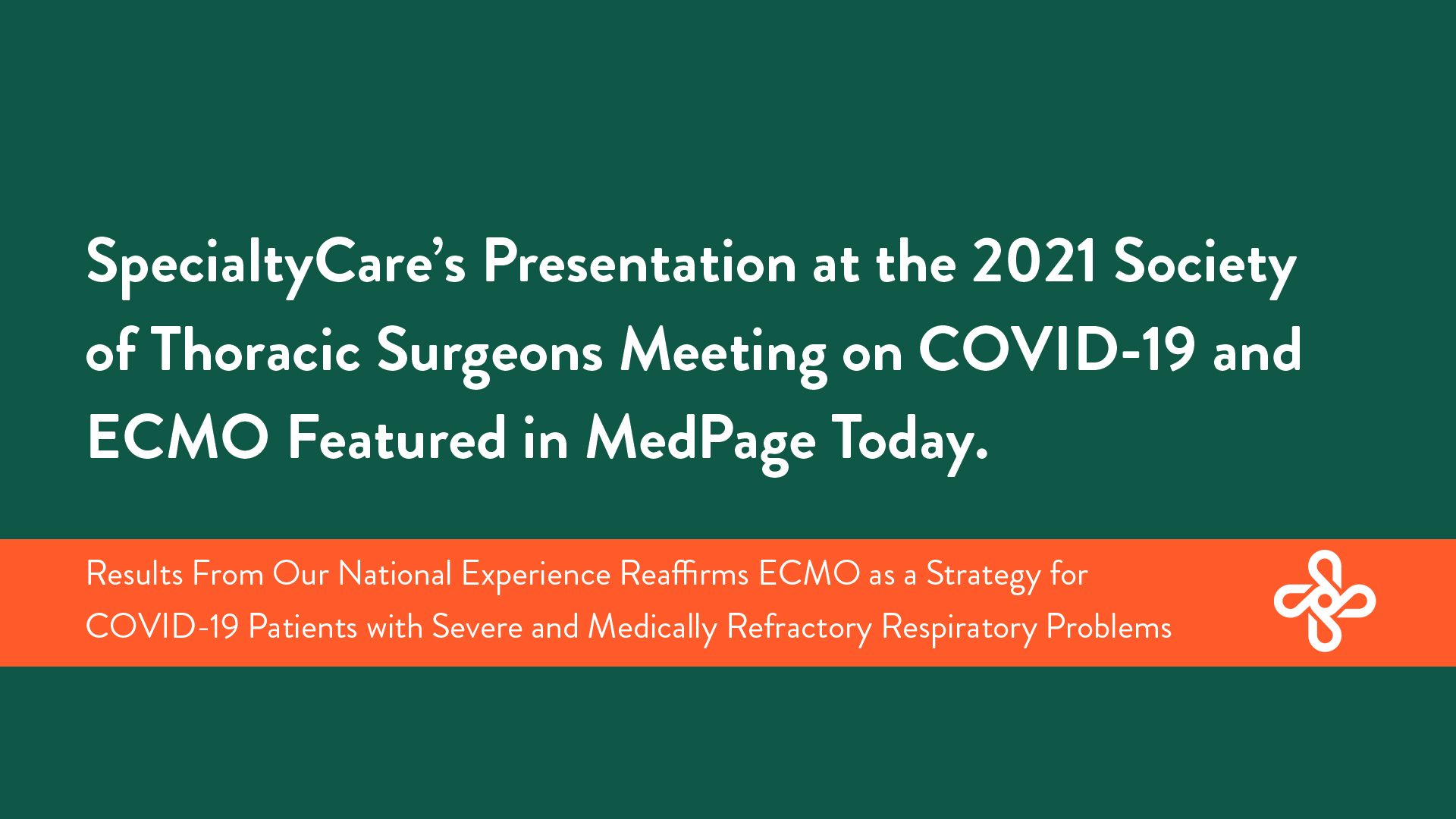
Heart surgeries are more complex than ever. To ensure the best patient outcomes, perfusionists should meet and exceed minimum training and credentialing qualifications to be part of your OR team. What are those requirements? How do you know if your in-house team or vendor partner is meeting these guidelines?
SpecialtyCare has been in the perfusion outsourcing business longer than any other company; we support one in every eight open heart surgeries performed in the U.S. That makes us the nation’s largest and most experienced provider of outsourced perfusion services. This volume enables us to collect an enormous amount of clinical data — quality metrics for more than 100,000 perfusion procedures annually. Our medical department analyzes this data to identify benchmarks and standards that drive evidence-based solutions for our hospital partners and the industry as a whole.
DOWNLOAD FREE GUIDE
SpecialtyCare has found a number of recurring themes when talking with surgeons, hospital executives, and administrators who are assessing their current perfusion services. They are trying to determine whether a different staffing model would best meet their needs, but they lack strong data for decision making:
- “I like my perfusionists, but I’m not sure they’re using best practices.”
- “We’re having trouble covering an increased number of cases.”
- “We have to transfer ECMO or other intensive cases.”
- “One of my perfusionists is retiring, and we’re having trouble hiring a good replacement.”
- “We might have quality issues, but honestly, we don’t have enough data to tell.”
Based on these conversations, here are some considerations to make sure you have the best available perfusion team in your OR:
- What are the perfusion team’s quality standards, and can the team provide benchmarking? If they can’t demonstrate their quality on paper, they might not be able to deliver it in the OR. Ask your provider for clinical quality guidelines and learn everything you can about their quality program. Quality is not a place for guesswork. Yes, the quality of the relationship between surgeon and perfusionist is vital, but sometimes you have to think critically. Am I really giving my patients the best available option or is this just familiar? When you have data on clinical quality, it’s incredibly valuable to be able to benchmark the data against metrics collected throughout the hospital system —and against regional and national data as well. Is your provider capable of showing you the big picture along with granular detail?
- What credentials do your perfusionists hold? What about their training? In addition to meeting licensing requirements, your perfusionists should be able to document their education, how their certification and credentials are managed, how they meet annual training requirements, and how their clinical competencies are systematically evaluated and confirmed. Are your perfusionists backed by certification of The Joint Commission? What about mentorship or structured professional development programs? You need to see evidence of standards and expectations for the team that will serve your hospital and patients.
- Who will oversee your perfusion program, and how will it be billed? Is communication effective? If you’re considering a transition from in-house to outsourced perfusion, how exactly will the outsource partner support your current team? Change can be painful, so you need to know how that pain will be managed. Are there appropriate standards in place to ensure you’ll maintain regulatory compliance? You also need to know that you will be billed fairly and clearly. Do you understand the true and total costs of perfusion services, or are you getting bundled pricing with extra invoices for add-on services?
- Does your perfusion team have capabilities beyond essential perfusion? Your team must evolve with the needs of your hospital and the community you support. Can a perfusion team also provide blood management, autotransfusion, ECMO, HIPEC, or other services that will enhance your hospital’s service capabilities and your reputation as a destination treatment center?
The need to deliver greater value has never been more important. Just as SpecialtyCare is committed to using our data to help hospitals improve cardiac surgery and their overall clinical and financial outcomes, we offer the above suggestions to help assess and improve their perfusion teams as well.
For more information about what you need to consider for developing a successful perfusion department that helps achieve your quality goals, download our guide.
About SpecialtyCare
SpecialtyCare is the industry leader in perfusion and intraoperative neuromonitoring, providing staff and resources to 1,100 hospitals and health systems nationwide. We offer services such as perfusion, ECMO, autotransfusion, sterile processing consulting, surgical assist, and complex instrument support. Our job is to make surgery safer, share innovation and research using our extensive knowledge base, and help your health system maintain standards of excellence and improve patient outcomes year after year. To learn more about our services, contact us today.



Comments are closed.